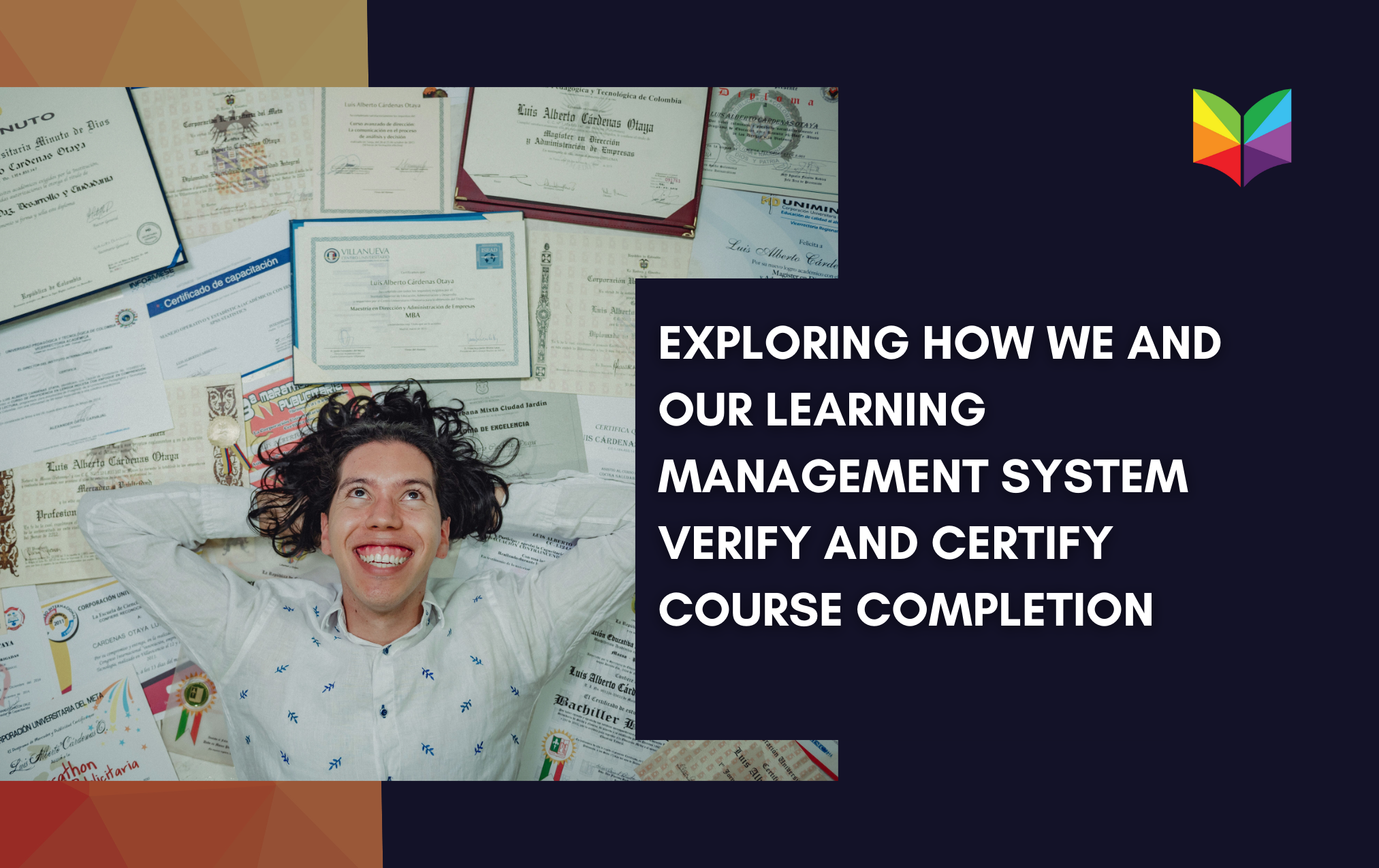
Exploring How The Tourism Academy and its Learning Management System Verify and Certify Course Completion
In the digital age, online learning has become indispensable for individuals seeking to enhance their skills, gain new knowledge, or even pursue formal education remotely. Learning Management Systems (LMS) are pivotal in delivering online courses, managing content, and facilitating interactions between instructors and learners. Among the various LMS platforms available, The Tourism Academy is a popular choice for destination marketing organizations and tourism businesses, offering a comprehensive suite of features, including course verification and certification. In this article, we will delve into how The Tourism Academy and similar systems verify and certify course completion, ensuring that learners receive the recognition they deserve for their efforts.
The Role of Learning Management Systems:
Learning Management Systems serve as the virtual backbone of online education. These platforms enable instructors to design and deliver courses, manage content, track student progress, and facilitate communication between learners and educators. Course verification and certification hold special significance among the features provided by LMS, as they validate a learner's accomplishments and provide tangible evidence of their skills and knowledge acquisition.
Course Verification:
Course verification ensures that learners have actively participated in and completed the requirements of an online course. The Tourism Academy and similar LMS platforms utilize various methods to verify a student's engagement:
-
Progress Tracking: LMS platforms track learners' progress through course modules, quizzes, assignments, and other learning materials. Instructors can set specific completion criteria for each module, which learners must meet before proceeding. This tracking helps establish whether a student has interacted with the course content and made significant progress.
-
Assessment Completion: Quizzes, tests, assignments, and assessments are integral to online courses. LMS platforms like The Tourism Academy record the completion of these assessments, providing instructors with data on how well learners are performing and whether they are actively engaging with the course material.
-
Attendance and Engagement: Some LMS platforms integrate tools that gauge student participation and engagement, such as tracking discussion forum contributions, interaction with multimedia elements, and time spent on each module. These metrics can indicate whether a learner is actively participating in the course.
Certification:
Certification is the culmination of a learner's efforts and officially recognizes their successful course completion. The Tourism Academy and other LMS platforms offer various ways to certify learners:
-
Customizable Certificates: Instructors can design and create certificates that reflect the branding and identity of their courses. These certificates typically include the learner's name, the course title, the instructor's name, and a signature or seal of authenticity. The Tourism Academy allows customization of these certificates to match the overall course aesthetics. Read more
-
Criteria-based Certification: LMS platforms can issue certificates automatically once a learner meets specific criteria, such as completing all modules, passing grades on assessments, and fulfilling required assignments. This ensures that certificates are only awarded to learners who have mastered the course material.
-
Manual Certification: Instructors may manually review and certify course completions before issuing certificates. This process offers an extra layer of validation, ensuring learners have met the technical criteria and demonstrated a deep understanding of the course content.
Benefits of Course Verification and Certification:
-
Credibility: Verifying course completion and issuing certificates enhances the credibility of both learners and instructors. Employers and institutions can trust that certified individuals possess the skills and knowledge they claim.
-
Motivation: The prospect of receiving a certificate upon completion can motivate learners to actively engage with the course content and commit to their studies.
-
Career Advancement: Certifications obtained through LMS platforms can boost an individual's resume and open up new career opportunities. They can be precious for those seeking to switch careers or enhance their skill set.
In conclusion, Learning Management Systems like The Tourism Academy are vital in verifying and certifying course completion. These platforms ensure learners actively participate in their courses through progress tracking, assessment completion, and engagement monitoring. The issuance of certificates further validates learners' accomplishments, making online education a recognized and respected avenue for personal and professional growth in the modern world.


Leave a comment